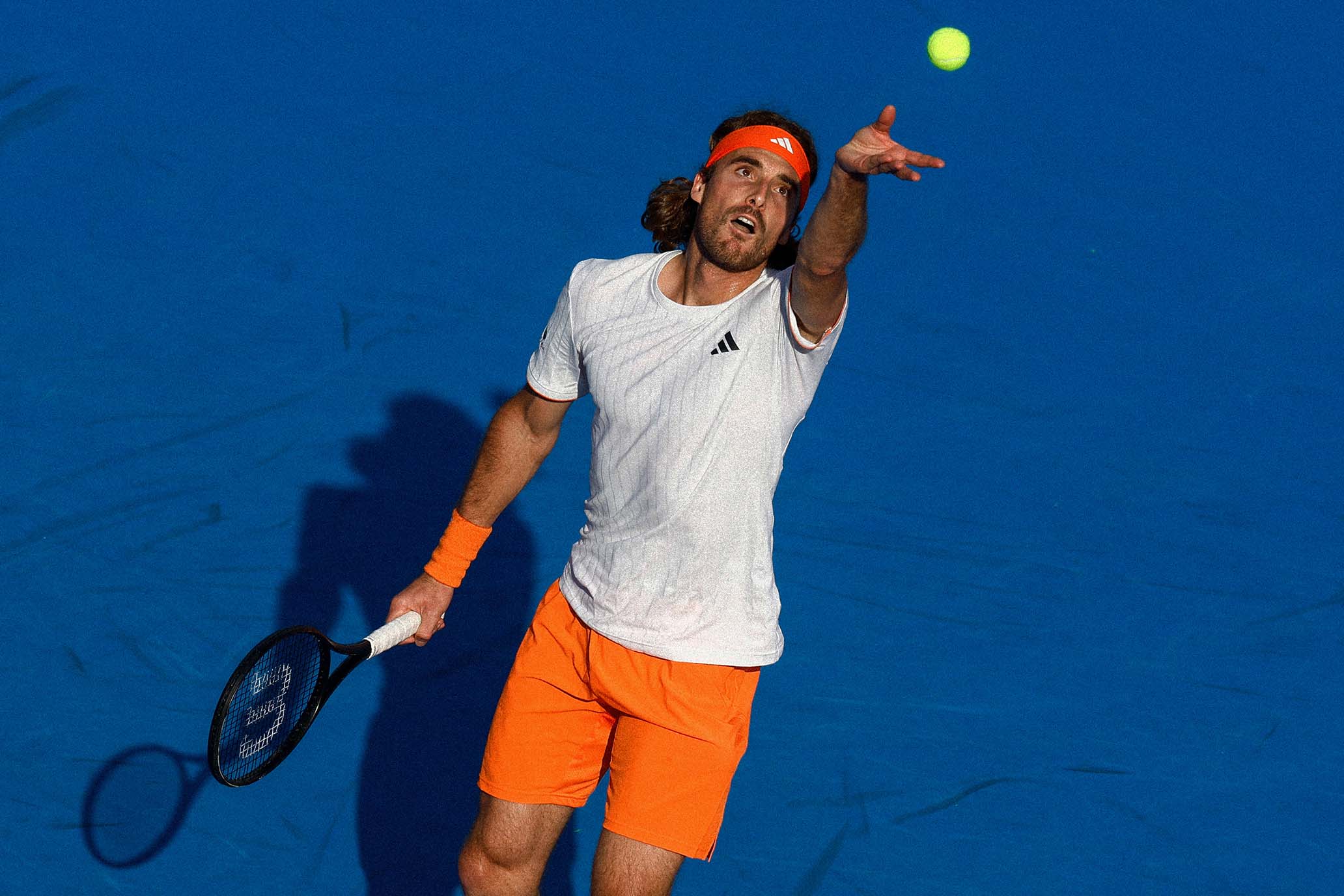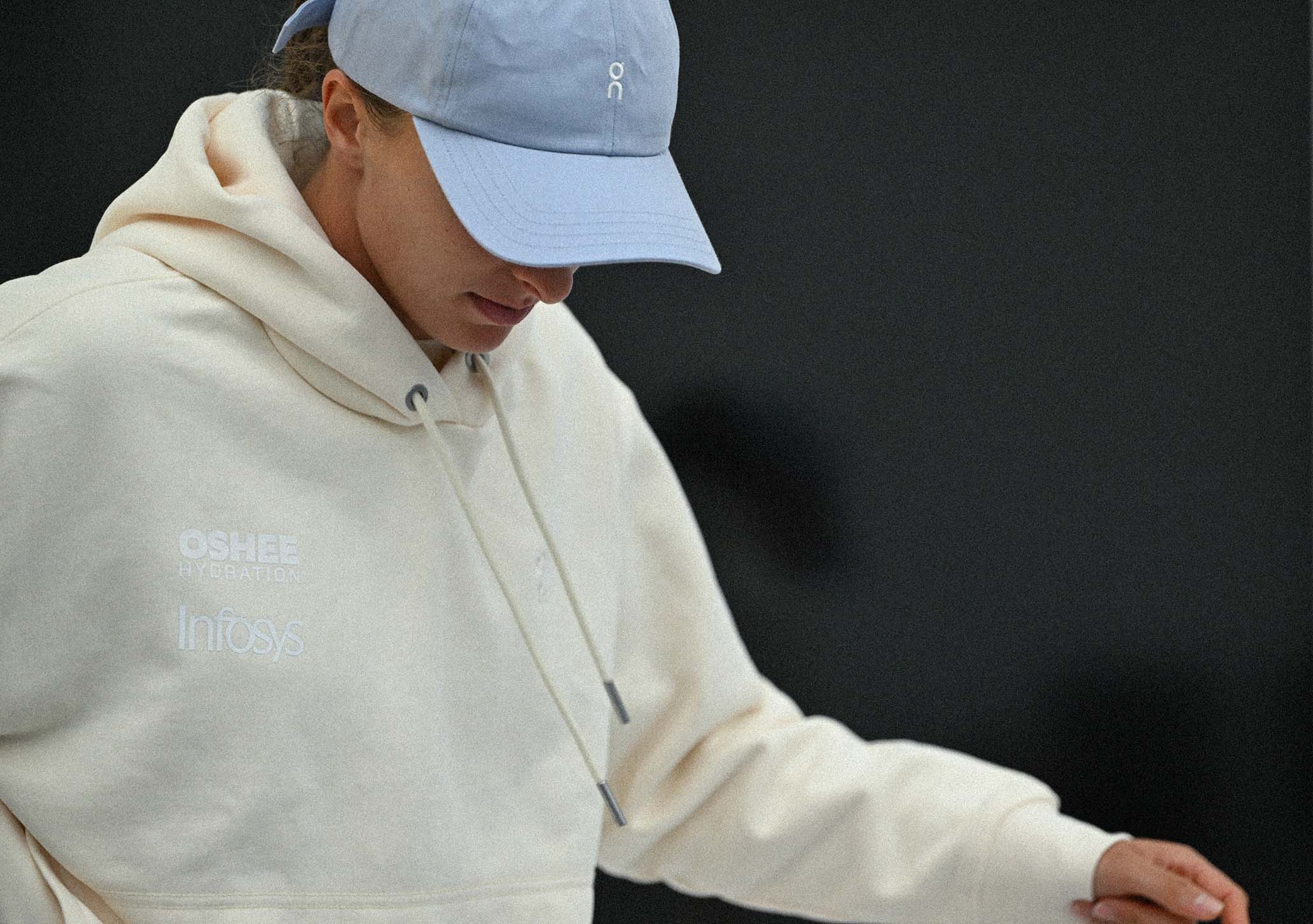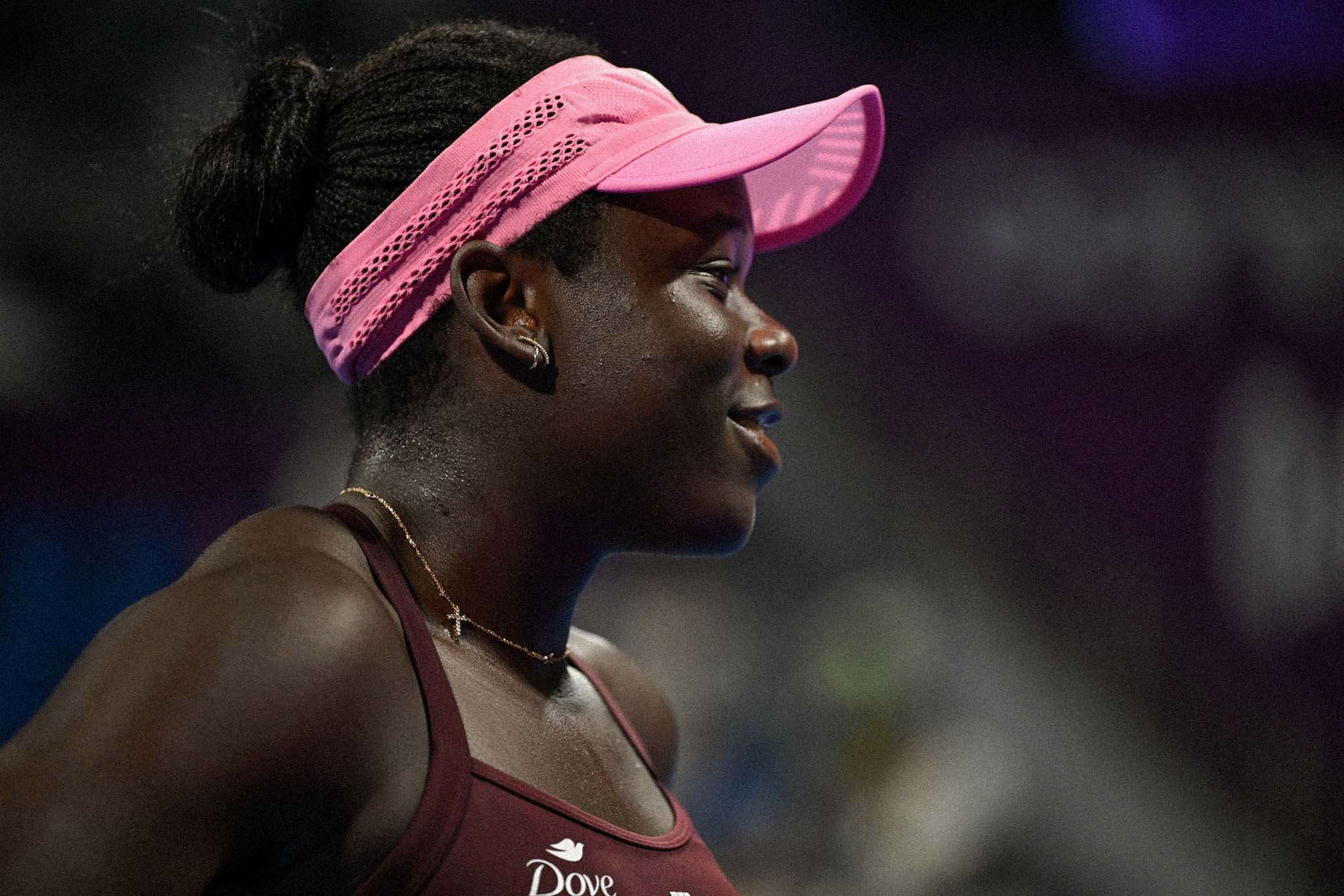The Everyman
The Everyman
Alejandro Davidovich Fokina needs a hug.
Alejandro Davidovich Fokina needs a hug.
By Owen LewisOctober 6, 2025
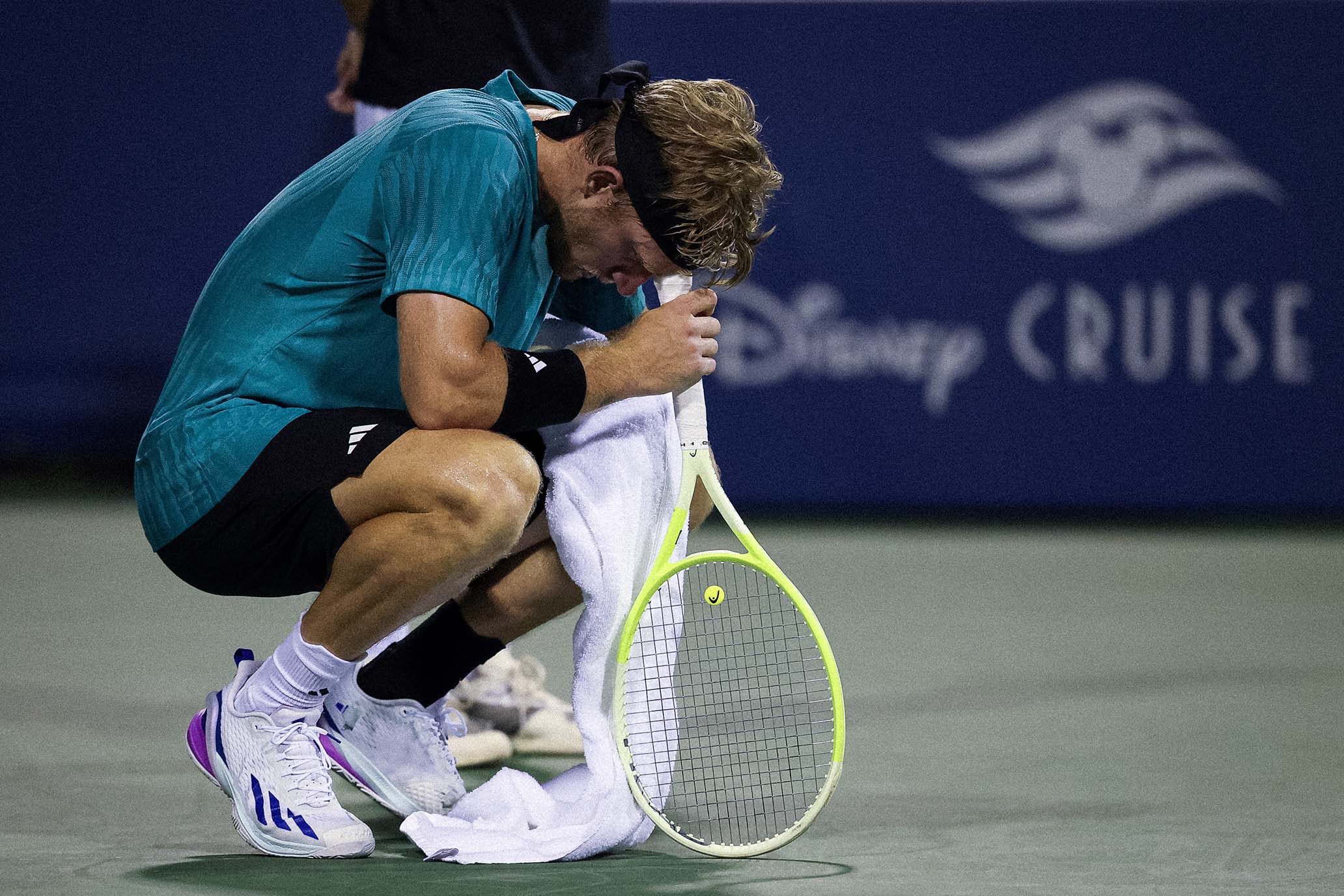
Foki readies himself for the inevitable in the DC final this summer. // Getty
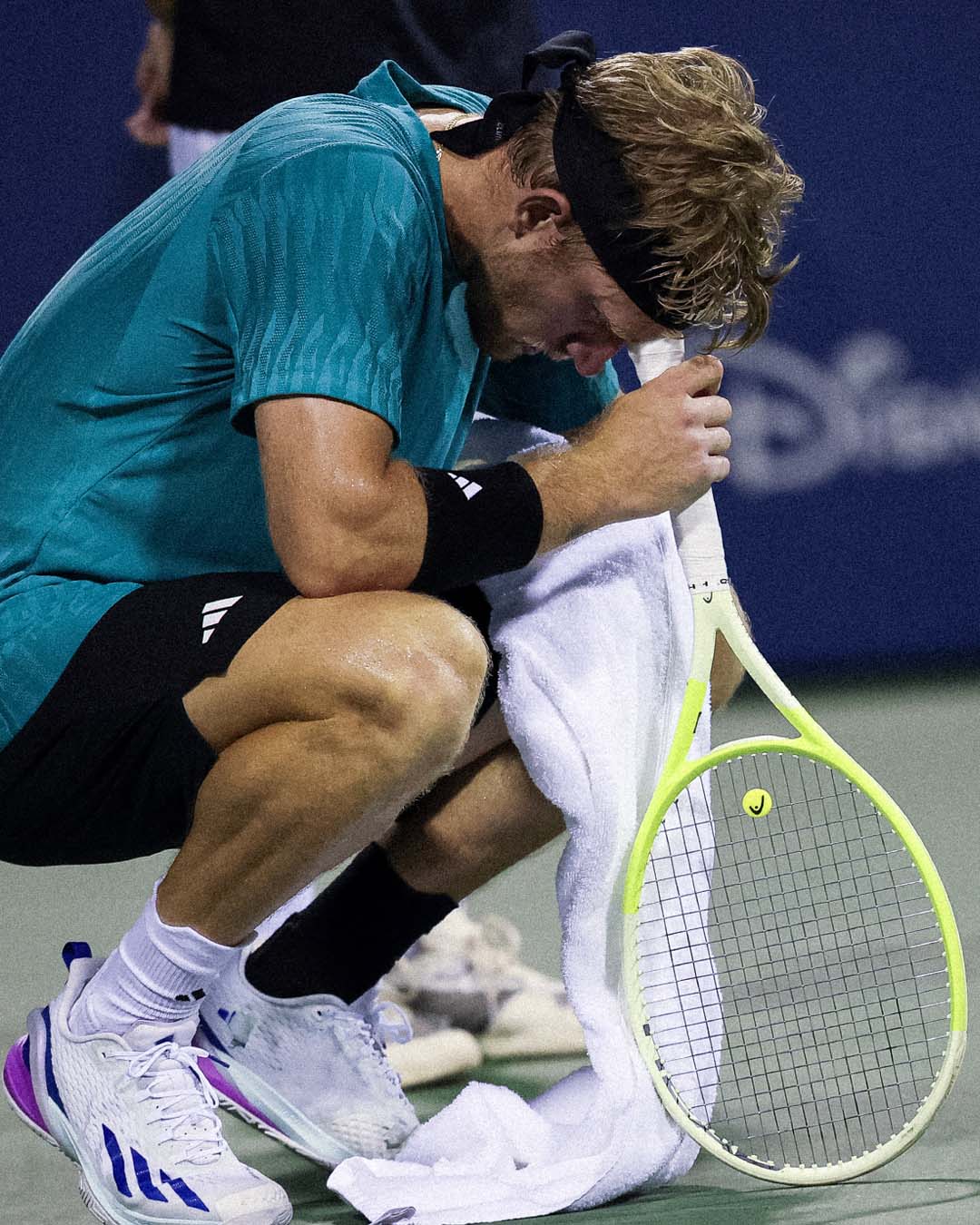
Foki readies himself for the inevitable in the DC final this summer. // Getty
Alejandro Davidovich Fokina must need a hug. Since Alex de Minaur saved three championship points to beat him in the final of the Citi Open, leaving Foki’s heart cracked and dripping over the Washington, D.C., hard court, the 26-year-old Spaniard hasn’t looked the same. How could he? He’s never won a title despite being more than good enough to do so; this was his golden opportunity to break the duck; and all this will hang over his head until he either corrects it or dies. His storyline wouldn’t be out of place if retconned into an episode of The Leftovers at this point—just substitute him in for Matt Jamison—or set to Max Richter’s most yearning track from the show. At Wimbledon one year, Foki hit a pathetic underarm serve at 8–all in a final-set tiebreak against Holger Rune, charging the net behind it to inevitably get passed. “I shit myself,” he said later, by iconic way of explanation. Foki gets good heft on both forehand and backhand, has soft hands, and his footwork covers the court like rainfall. But he is less than the sum of those parts. It’s like God designed a world-class tennis player and forgot to add the ability to stave off calamitous mental implosion, or adequate bowel control.
Foki surely rued God’s omission in Washington. Secondhand trauma incoming: Davidovich Fokina led de Minaur 5–2 in the third set and served for the title at 5–3, 30–love. He had three championship points at 5–4 and lost all those, too. Interspersed among these pivotal moments were deadly-serious stares at his box, hoarse shouts, windmilling arms, despairing whimpers. As if the hellish suite of missed opportunities weren’t enough, Davidovich Fokina did better and better on each match point, underscoring how close his failure was to tipping over into success. De Minaur saved the first with a backhand winner down the line. Foki landed a deep return on the second but played tentatively during the rally and eventually fell victim to another de Minaur backhand. On the third, Davidovich Fokina scorched a forehand down the line that stretched de Minaur to his limits. But the quick, willowy Australian managed to coax a lob onto the very outside of the sideline, then blitzed forward to pass Davidovich Fokina at net. Foki was learning and adapting on each match point, and had he gotten a fourth, maybe he would have done well enough to win it. He never did. Before de Minaur served an ace on a match point of his own, Davidovich Fokina sank back onto his haunches, butt of his racquet pressed into his forehead, getting a head start on grieving this catastrophe. I expected his blond hair to start turning white.
Since, Davidovich Fokina has won just five of 10 matches. At the China Open, he unraveled so easily that rage monster Daniil Medvedev looked as calm as a yogi en route to an easy victory. Foki was in disarray: He beckoned frantically for more towels and took a dislike to the angle at which a member of the tournament staff held an umbrella over his head on a changeover, adjusting it himself. He stared in mute betrayal at his racquet strings and the court. He hit so many standard crosscourt backhands into the same spot at the top of the net that I wondered if he was having an issue with his vision. Had he suddenly been raptured right through one of Lotus Arena’s folded diamond-shaped cutouts, I doubt he would have minded. Foki got another shot at Daniil in lethally humid conditions in Shanghai; he even shored up his backhand. (Perhaps at the cost of his forehand, which oozed 21 unforced errors.) He lost in straight sets again, at least this time making Medvedev beat him with brilliance in a second-set tiebreak. I doubt that was any consolation.
Foki’s struggles are refreshing to watch for their anguish. World No. 2 Jannik Sinner lost to Carlos Alcaraz in a Roland-Garros title match at least as torturous as the D.C. final, only to immediately exact revenge at Wimbledon. His coach, Darren Cahill, has said Sinner barely even discussed the Roland-Garros match with him before moving on. Imagine! The worst moment of your professional career, maybe your life, and for all intents and purposes, it never happened. Even the more mortal Taylor Fritz ate an 11th straight loss to Novak Djokovic at the U.S. Open in which he made plenty of mistakes sufficient to ruin a night’s sleep, then got right back to playing some of the best tennis of his career at the Laver Cup and Japan Open. The unfamiliar viewer could be tricked into thinking these losses didn’t hurt so much after all.
Foki knows better. His value is not as a glutton for punishment, but as the avatar for the common tennis fan and recreational player. (One who sometimes takes to Instagram to complain that 11 a.m. is too early a start time for his matches, but still.) Who among us hasn’t stared down a break point at 5–3 in the third set on the practice court, excruciatingly aware of the point-by-point process by which we could lose our lead and the match, and how much it would hurt? Like in D.C., you can see Foki sensing his collapses as they come, and sometimes he lets the woe envelop him like warm tar even as he continues to fight. He is a drama queen. Pressure makes him nervous, debilitatingly so at the worst times. Whether he will get over painful periods in his career is a question of if, not when. He does not always want to be at his job, and he lets you know. If he wins a title, it will be done via the oh-so-hard way of overcoming his persistent limits. That, or even a prolonged inability to get over the line, is unmistakably human.

PURE, ORIGINAL TENNIS — SIGN UP!
RECOMMENDED
Meddy and Stef: A Recipe For Weirdness
QATAR OPEN
The Top Ten For Vicky Mboko
QATAR OPEN
